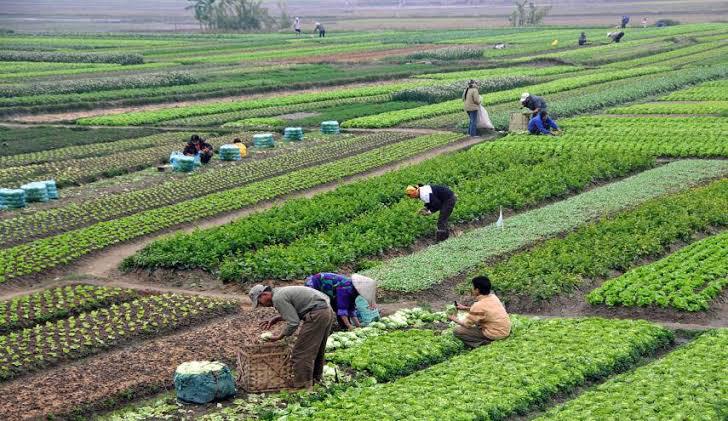
Egypt’s agricultural sector has recorded unprecedented export growth in recent months, a development attributed to sweeping reforms in farm coding, according to Agriculture and Land Reclamation Minister Alaa Farouq.
During a high-level meeting with Rabih Karaky, Practice Manager for Agriculture and Food for the Middle East and North Africa at the World Bank, Farouq highlighted that farm coding reforms have significantly improved traceability, regulatory compliance, and quality control in agricultural production.
These measures, he said, are now bearing fruit in the form of higher export volumes and expanded international market access.
“Our primary focus is on adding value to agricultural outputs and promoting agro-industrial integration to enhance the sector’s contribution to national economic growth,” said Farouq. He added that the ministry is executing national strategies aimed at both vertical expansion—through improved land and water productivity—and horizontal expansion, with the goal of cultivating more land and boosting output.
The minister also emphasized livestock development efforts, including breed improvement programmes and the “Betalo” initiative, which is designed to increase Egypt’s self-reliance in red meat production.
Modernization projects targeting the dairy, poultry, and aquaculture sectors are also underway.
Farouq pointed to the upgrading of milk collection centres and the adoption of advanced aquaculture technologies as central to Egypt’s broader food security strategy.
Additionally, he reaffirmed the ministry’s commitment to supporting smallholder farmers through better access to financial tools and modern agricultural equipment.
These measures align with the “Decent Life” presidential initiative, which aims to uplift rural communities by fostering micro- and small-scale enterprise development.
Farouq also underlined the importance of agricultural research institutions in fostering innovation, particularly in developing high-yield, climate-resilient, and water-efficient crop varieties—key priorities in an era of environmental uncertainty.
World Bank official Rabih Karaky praised Egypt’s achievements in agricultural development and reiterated the institution’s commitment to supporting sustainable investment in the sector.
“A comprehensive study is currently underway to assess Egypt’s long-term agricultural needs and explore strategic opportunities for enhanced cooperation,” he said.
The dialogue between the Egyptian government and the World Bank signals a deepening partnership focused on resilience, sustainability, and economic empowerment in Egypt’s rapidly evolving agricultural landscape.



